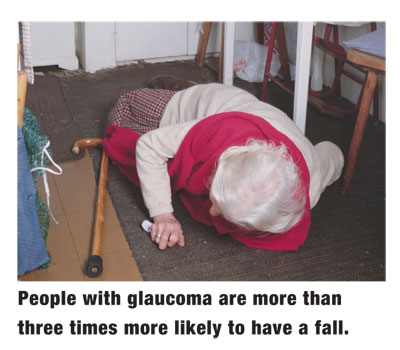Patients who have glaucoma are more than three times more likely to fall and more than five times more likely to be involved in a motor vehicle collision, according to a study in the March issue of Investigative Ophthalmology and Visual Science.
Previous studies have identified glaucoma as a risk factor for falls and motor vehicle collisions. However, the magnitude of the risk and the underlying factors of falls are not fully understood, and findings on motor vehicle collisions have been inconsistent, say the researchers from

For this study, the researchers recruited 48 glaucoma patients and 47 age-matched controls. They measured demographic and clinical data as well as the number of falls in the previous 12 months and the number of motor vehicle collisions in the previous five years.
At baseline, 17 (35%) glaucoma patients and six (13%) control subjects reported one or more falls in the previous 12 months. Patients with glaucoma were more than three times more likely than control subjects to have had a fall, the researchers found.
Also at baseline, 40 (83%) patients in the glaucoma group and 44 (94%) control subjects were driving. Eleven (27%) glaucoma patients reported one or more collisions in the previous five years vs. three (7%) control subjects. Eight (20%) glaucoma patients reported that they were at fault vs. one (2%) control subject.
Patients with glaucoma were more than five times more likely than control subjects to have been involved in a collision and more than 10 times more likely to be at fault, the researchers found.
Some additional findings: Patients who had undergone glaucoma surgery were less likely to have been involved in a motor vehicle collision. There was a borderline association between stereopsis worse than 40 seconds of arc and self-reported at-fault collisions in the glaucoma group.
Also, patients who had greater visual impairment were more than four times more likely than those with less impairment to have been involved in a self-reported at-fault collision.
More research is needed to confirm these findings, the researchers say. For that reason, they have begun a larger prospective study to investigate the underlying factors of both problems.
Potentially, the results have implications for patient education, licensing of drivers and intervention programs, they say.
Haymes SA, Leblanc RP,

